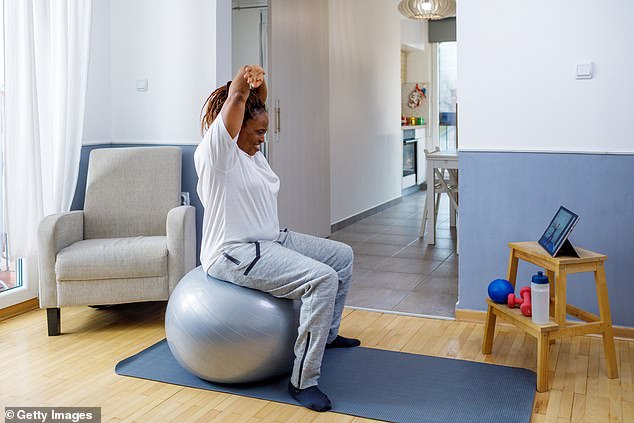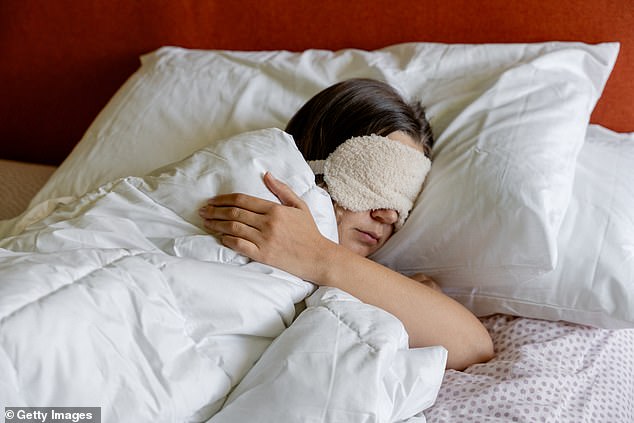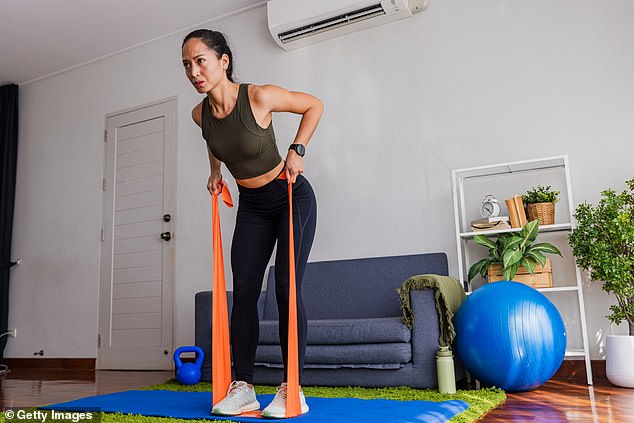If you expect to fall asleep for a long time, doing anything that requires movement may be the last thing on your mind.
But a study seems to show that doing some exercise in the hours before bedtime could help us sleep better.
Researchers found that doing short bouts of resistance exercise (such as chair squats and calf raises) every half hour before bed improved sleep duration by 27 minutes.
Current recommendations advise against intense exercise before bedtime, as it increases body temperature and heart rate.
But the results suggest it might not be all bad. Researchers at the University of Otago in New Zealand recruited 30 participants aged between 18 and 40 for their study.
Researchers found that doing short resistance training sessions every half hour before bed improved sleep duration by 27 minutes (file image)

Current recommendations advise against strenuous exercise before bedtime, as it increases body temperature and heart rate (file image)

The results appear to show that nighttime exercise does not alter sleep quality, despite current recommendations to the contrary (file image)
All of them reported spending more than five hours sedentary during the day at work and two hours at night.
Each participant completed two sessions in a lab, starting around 5 p.m.
In one session they sat for four hours, while in the other they performed three minutes of simple resistance exercises every 30 minutes for the four hours.
Each activity break included three rounds of exercises (chair squats, calf raises, and standing knee raises with straight-leg hip extensions) for 20 seconds each.
Before the experiment, participants spent an average of seven hours and 47 minutes sleeping.
But the analysis revealed that after the activity breaks, they slept 27 minutes longer on average, compared with the other session.
There were also no significant differences in sleep efficiency, meaning that participants did not wake up more during the night after completing the exercise.
While activity breaks may improve metabolism after a meal, it was unclear until now whether they had any impact on sleep.
Lack of sleep is associated with an increased risk of cardiometabolic disorders, such as coronary heart disease.
In an article published in the journal BMJ Open Sport & Exercise Medicine, the team said: “These results add to a growing body of evidence indicating that evening exercise does not impair sleep quality, despite current recommendations to the contrary.”


